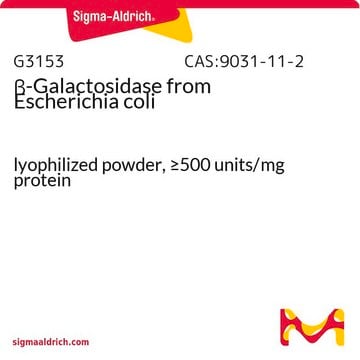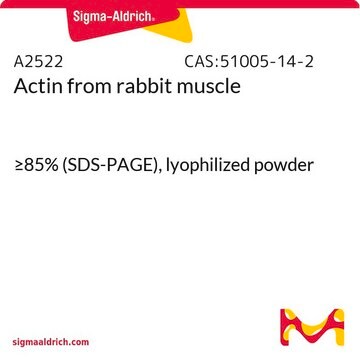D8940
Anti-Destrin/ADF (AE-14) antibody produced in rabbit
affinity isolated antibody, buffered aqueous solution
Sinonimo/i:
Anti-Actin Depolymerizing Factor
About This Item
Prodotti consigliati
Origine biologica
rabbit
Coniugato
unconjugated
Forma dell’anticorpo
affinity isolated antibody
Tipo di anticorpo
primary antibodies
Clone
polyclonal
Forma fisica
buffered aqueous solution
Reattività contro le specie
mouse, rat, human
Concentrazione
~0.8-1.2 mg/mL
tecniche
microarray: suitable
western blot: 1:600 using whole extracts of human A431 epidermoid carcinoma cells, rat PC-12 pheochromocytoma cells, or mouse NIH3T3 fibroblasts
N° accesso UniProt
Condizioni di spedizione
dry ice
Temperatura di conservazione
−20°C
modifica post-traduzionali bersaglio
unmodified
Informazioni sul gene
human ... DSTN(11034)
mouse ... Dstn(56431)
rat ... LOC296197(296197)
Descrizione generale
Immunogeno
Applicazioni
Azioni biochim/fisiol
Stato fisico
Esclusione di responsabilità
Not finding the right product?
Try our Motore di ricerca dei prodotti.
Codice della classe di stoccaggio
10 - Combustible liquids
Classe di pericolosità dell'acqua (WGK)
nwg
Punto d’infiammabilità (°F)
Not applicable
Punto d’infiammabilità (°C)
Not applicable
Certificati d'analisi (COA)
Cerca il Certificati d'analisi (COA) digitando il numero di lotto/batch corrispondente. I numeri di lotto o di batch sono stampati sull'etichetta dei prodotti dopo la parola ‘Lotto’ o ‘Batch’.
Possiedi già questo prodotto?
I documenti relativi ai prodotti acquistati recentemente sono disponibili nell’Archivio dei documenti.
Il team dei nostri ricercatori vanta grande esperienza in tutte le aree della ricerca quali Life Science, scienza dei materiali, sintesi chimica, cromatografia, discipline analitiche, ecc..
Contatta l'Assistenza Tecnica.








